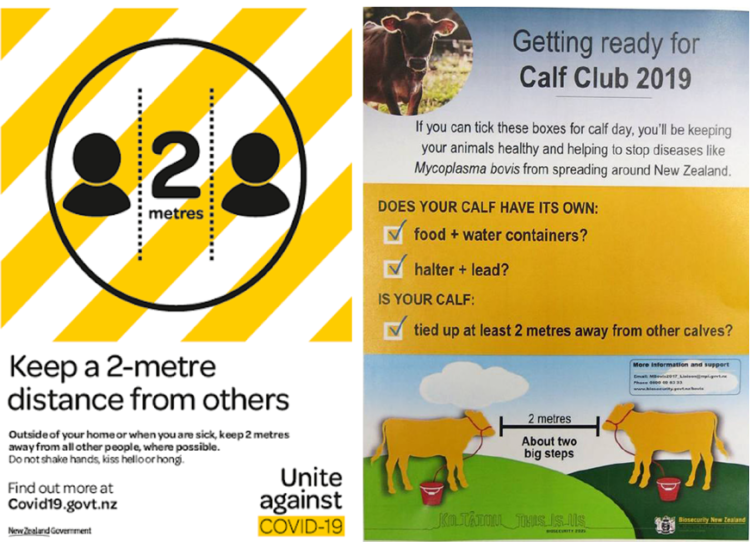Author: McDonald, D. A.
Published in National Security Journal, 24 August 2020
and performed. As an infectious disease of pandemic proportions, COVID-19 demands that we reconceptualise our relationships with the more than social world, including farmed and wild animals.106
Figure 2: Biosecurity posters for humans and animals: The 2-metre rule.
Post-COVID-19, the world must re-evaluate current understandings of human and animal bodies, borders and boundaries, movements and freedoms, economies and environs, and health and risk. In coming years, risks to human health will likely be more prevalent in assessments of the biological safety of animals, farming systems and primary products.107 New Zealand’s economic security rests heavily on maintaining a premium biosecurity status, and this includes protecting human and animal health for its citizens and reassuring its trading partners of the safety of its food. New Zealand could well be in the position of advising other countries about good biosecurity practices in all of their forms post-COVID-19.108
